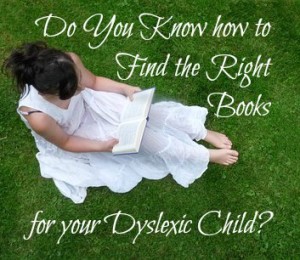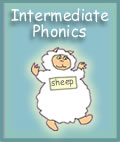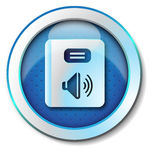 As parents of struggling readers, all we want is a simple way to know which books to use next. Where is that simple list?
As parents of struggling readers, all we want is a simple way to know which books to use next. Where is that simple list?
We often hear that dyslexics need books that are ‘decodable’ to help them build necessary skills. This refers to text that has been carefully developed to include ONLY the phonemic elements the child has already been explicitly taught.
In order to find those books, we need to understand that publishers and educators vary in what they call decodable books for emergent readers. They label them controlled phonetic text, cumulative phonemic readers, decodable books, or one of the other billion(ish) combinations of these words. To put it simply, the books are out there, but are not quickly searchable.
The situation is a shame, because the type of text dyslexic students read is critical to their mastery of the sound/symbol code. We need to find those books!
So, lets start at the beginning.
Why Should my Dyslexic Student Read Decodable Text?
Reading research clearly shows that the single best instructional technique for developing reading fluency (speed) is the use of controlled text. Students who learn phonetic rules before attempting to read from decodable text develop a reliable phonetic decoding strategy, and establish neural connections in their brain between sounds and letters, increasing their reading speed.
In addition to fluency, the science of reading also confirms that the use of decodable text is necessary to build automaticity – the automatic systems in the brain that lead to the development of unconscious reading skills (National Reading Panel, 2000). It gives students the ability to tackle new words, and reinforces their automatic reliance on decoding, which will serve them well as they encounter higher and higher levels of text with unknown words.
My favorite benefit to decodable readers however, is that the students who use them are able to experience immediate SUCCESS because the words in their book are based on the instruction that they have already received. It is critical that dyslexics receive hands-on feedback that their reading skills are progressing. We don’t want to discourage already struggling readers. With decodable readers they are able to practice their ever-increasing phonologic processing skills and successfully enjoy reading.
What Happens if we Don’t use Phonetically Controlled Readers?
Unfortunately, most of the books on our shelves are not controlled for phonics. They contain all kinds of words using multiple skills that a dyslexic student may not yet have acquired. (Did you realize that there are 7 distinct phonemic skills that must be developed before even beginning to learn to blend letter sounds.) So, if you hand a dyslexic student one of those books to read, they will have no choice but to revert to incorrect strategies – the very habits you’re trying to break.
The text that our children read most often will determine which strategies they will come to rely on. When children are given books that they cannot decode, they develop an over-reliance on guessing (you’ve probably noticed this problem when your child seems to know a word one day, and “forgets” it the next). The use of pictures and context is a tool, but it should never be allowed to become your student’s primary strategy for word recognition.
Similarly, studies show that dyslexic students who read primarily from leveled readers with predictable text will memorize patterns, repetition, and rhyme, without developing their phonetic skills. And those who read texts that focus on sight word recognition may try to rely on the shape of words rather than utilizing the letter/sound techniques that they have been taught.
How do I Choose the Right Decodable Material?
To determine if text is appropriate for your child, you need to consider what knowledge your child has already learned and then evaluate the phonetic structure within the book to see if they match.
Find the Right Books for your Dyslexic Child -Consider what knowledge your child has then evaluate phonetic structure http://t.co/hH750Ugkhy
— Sheryl G (@LibertyHH) October 25, 2014
Many programs put their books in numerical order. This is extremely helpful, but these numbers only make sense if you have instructed your child in that same order. Although decodable text is simple in the beginning, it expands as the child learns more of the phonemic code, so what is decodable for one child, may not be for another depending on which skills they have been taught.
Again, the crucial factor in determining the decodability of text is the reader’s current knowledge. Any set of decodable readers will do, but it is important that you use them in the correct order. You will need to be aware of :
- The phonetic skills your child has learned. (the phonograms not just the letters of the alphabet)
- The number and type of syllables your child has received instruction in.
Remember, decodable texts are not the same as leveled readers. Always evaluate the vocabulary carefully. Do not rely on the grade level rating or “easy reader” label printed on the book, as many are decidedly not decodable.
Finding Decodable Books:
We have amassed quite a collection of phonetic readers over the years. Some have been hits, while others were duds. Don’t worry, I won’t share the lousy ones. {Some of the links below are to affiliate accounts, which means that, at no cost to you, I may receive some compensation, but be assured that I only recommend materials that we use and love}
Here are the best of the best:
All About Learning Press – These get the award for most beautiful. They are not presented at the same pace as our reading program, so I used them with my dyslexic daughter when she was well on her way toward independent reading, but they are well worth the money because of their fantastic images.
Barton stand alone books – The website is ugly, but don’t let it fool you. These are my daughter’s favorite because the subject matter is so much more mature than other decodable books. Topics like prom, taxes, and driving are discussed in even the first level.
Highnoon – We were introduced to these through a tutor who raved about them. The inclusion of chapter books, classics, and graphic novels makes this a fantastic source for decodable readers.
I See Sam – We’ve received a couple of these as hand-me-downs, so I can’t give a full review of all of their products, but the ones we’ve seen have been nicely done.
Bob Books are the age old standby. They are small for little hands, and extremely simple. All of my kids started with these, and enjoyed coloring the pages after they finished reading the book all by themselves, but they are quite simplistic, so I only recommend these for ages 7 and younger.
Superkids has a fantastic library of engaging books that are both high-interest and phonetically controlled. The best part about these readers is that many are non-fiction, which is extremely hard to find in phonetically controlled texts.
Gah! Those are expensive! Where can I find FREE phonetic readers?
 The advantage of purchased readers is that they look more like books than worksheets, but with the volume of reading that we need to do with our struggling readers, it is wise to use both. Here are our favorite sites for free decodable readers:
The advantage of purchased readers is that they look more like books than worksheets, but with the volume of reading that we need to do with our struggling readers, it is wise to use both. Here are our favorite sites for free decodable readers:
- http://funphonics.com – Explicit systematic phonics readers that you can download and print at home.
- http://www.progressivephonics.com – These are free for a limited time only, but I thought I’d include them anyway because they are one of my favorites. The best part, in my opinion, is that they provide matching worksheets for each book, so you can ask your student to read and respond silently. Which tends to boost my child’s confidence.
- http://www.freephoneticreaders.com – We found the vocabulary page included with each of these readers very helpful to review before jumping into the text itself.
- http://www.readinga-z.com/books/decodable-books/ – This one is my favorite because the skill being taught is clearly identified.
- http://www.starfall.com/n/N-info/onlinebooks.htm – These aren’t my favorite readers, but the fun interactive website more than makes up for it. Lots of highly interactive phonics practice.
- http://www.hubbardscupboard.org/sight_words.html – sight word printable books – I only include this resource here because there are some common sight words that cannot be decoded. Ever tried sounding out the word “of?” Impossible right? High-frequency sight words are necessary, and hubbards cupboard presents them by specific word so that you can focus on one at a time.
- AR Book Finder. You can find out any book’s reading level (Lexile score) on this site. Use advanced search function, and you can search for similar books by lexile score, topic, and interest level (super handy when dealing with students who are asynchronous.) As always, check these books for true decodability before handing them over to your student.
When can I stop using controlled text?
Reading experts agree that decodable text is necessary until dyslexic students become independent in properly sounding out words. That said, restricted phonics is only a temporary limitation. As your student acquires skills the material that is decodable (to them) rapidly expands. Eventually they will be able to pick up and read any book. Decodable text is only a temporary restriction to help the child build necessary skills. Decodable text is highly effective tool to help children develop correct reading skills.
 Final Thoughts
Final Thoughts
(I think this should be obvious, but I feel obligated to say it anyway) – Just because your child is required to read decodable text, doesn’t mean that you should avoid providing them with access to more complex literature. Read aloud, borrow audiobooks from the library, or join a program like Learning Ally. It is important to provide access to material in a way that is accessible to our dyslexic students.
Have you been using decodable text in your lessons? Which are your favorites? We are always looking to add to our collection!



My child isn’t a reader yet. I do not believe she is dyslexic, but she does a lot of flipping letters and getting confused between b and d. Hard to tell at 4 if this is normal developmental issues or something to watch, but I appreciate the knowledge and information. I will certainly know where to look if I need to and can use decodable text to teach her to read in any case. Plus, if I’m ever in the classroom again, these will be invaluable resources.
I think every kid goes thru messing up some letters- sometimes at my age I still think what the b or the d looks like, haha, sometimes I write a word and it looks so odd, but really is right, has that ever happened with you
I am the weird exception Terri. I was practically born reading and writing, which made it extremely difficult for me to recognize just how many tiny steps are involved in teaching a dyslexic child to read. For the longest time I kept thinking “I already taught you that!” not realizing that I hadn’t started at the beginning (Did you know that the written ABCs aren’t the beginning for dyslexic kids?). I am eternally grateful for Orton-Gillingham programs.
Nicely done! We have been struggling with my daughter who has no exact “diagnosis” but we’ve been to 2 vision specialists and she has issues with directionality and laterality. It’s hard enough to deal with a child who struggles with reading but when you add in the component of not knowing where to look that really adds to the frustration! I shared on my FB page! :)
Ugh. We spent a lot of time working with vision therapists hoping that DD’s problem was purely physical in nature. If I could go back in time I would ask her pediatrician refer us to an educational evaluator sooner. ((hugs)) It is so hard to be a mom when things don’t go as you expected.
This is really interesting and I’m sure someday I’ll be glad I pinned it! I am not dyslexic, but I grew up with a girl who is. It’s so hard to find the right things and I hate seeing how many people with dyslexia end up not enjoying reading EVER!
What an incredible resource for a parent going through this with their child. Well done on the research. And laid out very well in the article. Excellent!
I don’t have a dyslexic child but I still appreciate all of this information. Who knows, I may need it in the future.